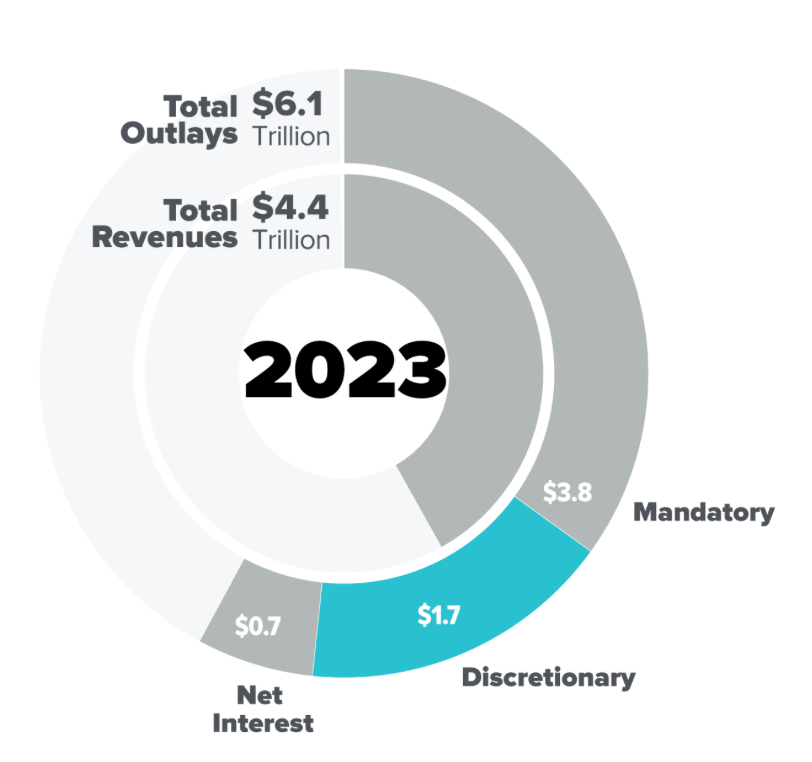Top 10 Threats to Watch in 2025
Heading into 2025, the world faces unprecedented uncertainty. Here's what's most on our radar.

The world is obviously facing serious challenges going into 2025, and nowhere moreso than in democracies. From our perspective at America 2.0, here's what we're monitoring most.
#1: Cabinet and Agency Appointments
If policy is personnel, we can already see that Donald Trump intends to dismantle the US government — not by installing people who will enact his policies, but by placing people into positions who are expressly anti-qualified for their roles.

Kash Patel at FBI, Tulsi Gabbard as Director of National Intelligence, and Pete Hegseth at DoD stand out as extraordinary risks, but across the board, it's clear the intent is, as Steve Bannon has said, to "dismantle the administrative state."
Robert F. Kennedy, Jr. poses risks to health at the Department of Health and Human Services, and seeks to undermine the CIA by placing his daughter in law, Amaryllis Fox, as deputy director. Across the board, Trump's cabinet picks are a disaster, and nearly all of them appear to have been hand selected by Kremlin pal Artem Klyushin. As historian Timothy Snyder has said, these picks are a "decapitation strike" against the United States.
#2: Elon Musk and DOGE
No one elected Elon Musk to any role, but Donald Trump and Mike Johnson never seem far from their minder. Musk has made himself a constant presence at Mar a Lago and on Trump's junkets around the world. "DOGE," the so-called Department of Government Efficiency, has no official status, and it's not clear that it can serve as anything other than an advisory board to Congress, which has the power of the purse. Regardless, DOGE is attracting Washington's weirdest — from Vivek Ramaswamy to Marjorie Taylor Greene and Ron Paul. Musk, whose wealth now exceeds $400 billion, presents a special risk, especially as he aspires to become King of America (see "Project Russia," below).

#3: Middle East Power Vacuum
With the fall of the Assad regime in Syria and Israel's ongoing war against Hamas, Hezbollah, and Iran, the region remains a powder keg. The American alliance with Israel will likely enter a new phase, with Trump, Netanyahu, Erdogan, and Putin finding a common point of equilibrium. Russia's withdrawal from Syria can be read both as a sign of defeat as well as a delegation of power to other partners. As always, what happens in the Middle East matters because of how it affects the rest of the world.
#4: Economic Meltdown and Financial Crisis
Elon Musk believes the United States will default on its debt sooner or later, and we may get the opportunity in 2025. The debt ceiling kicks in again on January 3rd. If we fail to raise or suspend it (as it has been since mid-2023), we will once again face the possibility of default.

This will require the Treasury to immediately enact "extraordinary measures" to conserve cash, and to provide an "X-date" of when actual default will occur. If we fail to raise or suspend the debt ceiling, we will default, sparking a global catastrophe unlike anything the world has experienced.

There are other risks, too: proposed tariffs, mass deportations, and budget cuts by DOGE (up to $2 trillion, greater than the entire $1.7 trillion discretionary budget) would lead to extraordinary economic instability and would greatly harm the economy and the dollar. Given that this is Putin's top desire, and Musk, Johnson, and Trump are all in Putin's corner, this is something we should expect may happen — if saner minds do not prevail.
#5: Climate Disasters
Earth keeps getting warmer, more energetic, and more prone to catastrophic weather events. While no one can predict weather with certainty, it's reasonable to expect several large scale climate-related events in America and around the world at a time when the US federal government is being disbanded. Should these events co-occur with a period of financial instability, Americans may feel particularly isolated and abandoned. It's worth having some basic supplies on hand, especially if you live in an area known to be at risk. Mostly, be mentally prepared for disruption and the fact that services and agencies that could previously be relied upon to help may not be available.
#6: Crypto Bubble
Bitcoin is on a tear, and if some US lawmakers get their way, we may trade some of our gold reserves for a "Strategic Bitcoin Reserve." Senator Cynthia Lummis has championed the concept, which could funnel up to $677 billion into Bitcoin, making existing holders much wealthier. Her hand-waving reasoning concludes that this all could help the US pay down the national debt.

Dennis Porter is the main player behind the effort to establish a Strategic Bitcoin Reserve.
In reality, this would drain the US of its gold reserves, trading it instead for some large prime numbers. As a European Central Bank paper recently noted, this would make the worst people in the world extremely wealthy, giving them an opportunity to drive Lamborghinis and (further) capture government by buying elections. If you include Musk's spend, crypto interests were at least $500 million in 2024, outspending Big Oil by approximately 5:1. Unlike Madoff-style Ponzi schemes, crypto is unique in that it harms non-participants by siphoning value out of the real economy.
If number go up, we face increased societal division and headwinds for democracy. If number go down, it may do so spectacularly and all at once, creating chaos that benefits our adversaries. The only long term way out is for governments to euthanize crypto schemes: treat them like Wildcat banks in the 1860's and tax them out of existence.
#7: Failure of Democracies
Democracies are fragile and inefficient. Accordingly, they often fail. We have come to take Western democracy for granted, but that confidence is misplaced. American democracy may not survive 2025, and many of our allies like Germany and France are facing similar challenges. Given the global nature of the war on democracy being waged by the world's authoritarian regimes (see: Project Russia), it is reasonable to expect continued information and kinetic warfare. If American democracy fully fails, ripple effects will be felt around the world.
#8: Societal Meltdown
Luigi Mangione's murder of United Healthcare CEO Brian Thompson has prompted many to raise the question, "Is it okay to kill people we don't like?" Obviously, there are other factors in play, but such discourse is a slippery slope. Lionizing killers, justifying their actions, or otherwise condoning extrajudicial murder is a line any society should take care when crossing. We should be aware that our adversaries want us to cross it, and will find ways to help us do so. It serves their interests and demonstrates clearly that democracy and the rule of law are unworkable, and that all of our finger-wagging is hypocrisy. Let's not help them make that argument.

Right now, we're also suffering an epistemological crisis over UFO mania. That issue may grow to become more acute, or there may be some new panic that takes root.

Our social media landscape is fractured to the point where we no longer share a common reality. A breaking point where we can simply no longer function is increasingly within reach.
#9: Mass Deportations
Rounding up and deporting millions of people is a huge amount of work and will require a lot of federal money and employees. Doing that while massively cutting the federal budget will prove challenging, if not impossible.

Trump is likely to declare a state of emergency (which may also involve invoking the Presidential Emergency Action Documents, or PEADs), and then launch a deportation effort. Such an effort is likely to advance to a crisis point before collapsing under its own weight and unpopularity. In particular, if inflation is a concern, expect food costs to spike dramatically. However, in the context of an ongoing polycrisis, this could be noise. In the worst case scenario, the dollar will be tanking while food costs skyrocket. If collapse truly becomes the goal, mass deportations may well be part of achieving it.

#10: Nuclear War
Most popular concerns over nuclear war originate from Kremlin-produced information warfare campaigns. While we believe nuclear confrontation is unlikely, we will definitely see a continued drumbeat of nuclear threats — from Vladimir Putin, Donald Trump, Kim Jong-un, and others. Dirty bomb threats or demonstrations of weapons may help to heighten the nuclear psychosis.

One area to watch is how Trump positions US nuclear capacity relative to Putin — will he partner with him, or challenge him? If history is any guide, they may team up to make demands of the rest of the world, cementing their power as strongmen. Overall the risk of an actual nuclear war is the lowest concern on this list, even as it may be at the top of everyone's mind in 2025.
Obviously, there are many other things to be concerned about. Project 2025, women's rights, new pandemics, education, and public health, to name a few. Everything is at risk. But these concerns are connected to the broader trends listed here. The American people must immediately wake up and mobilize against these threats.












